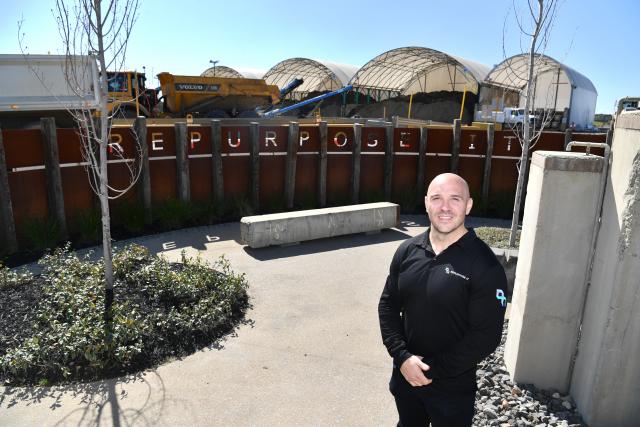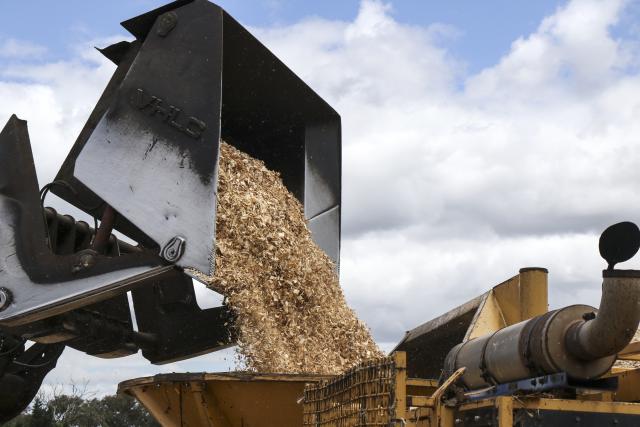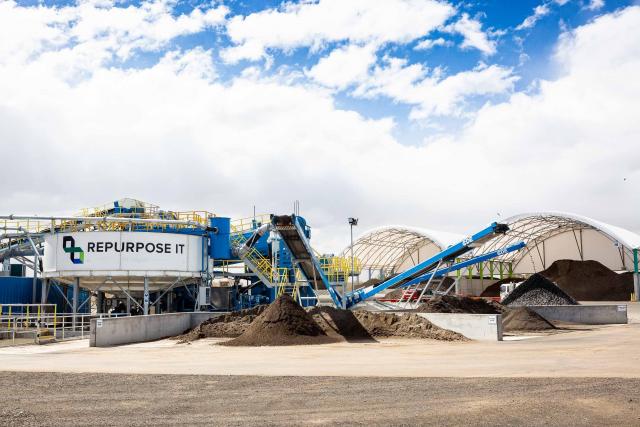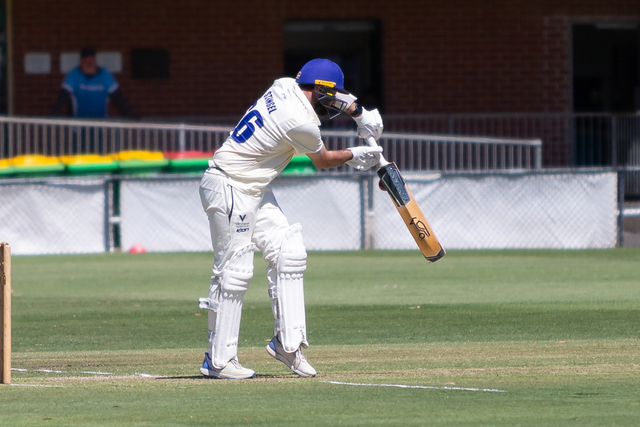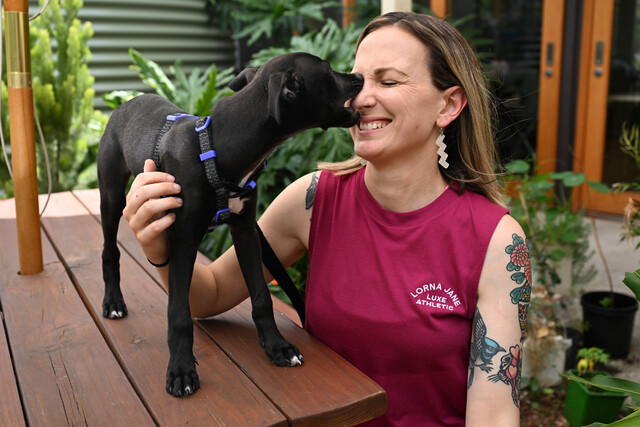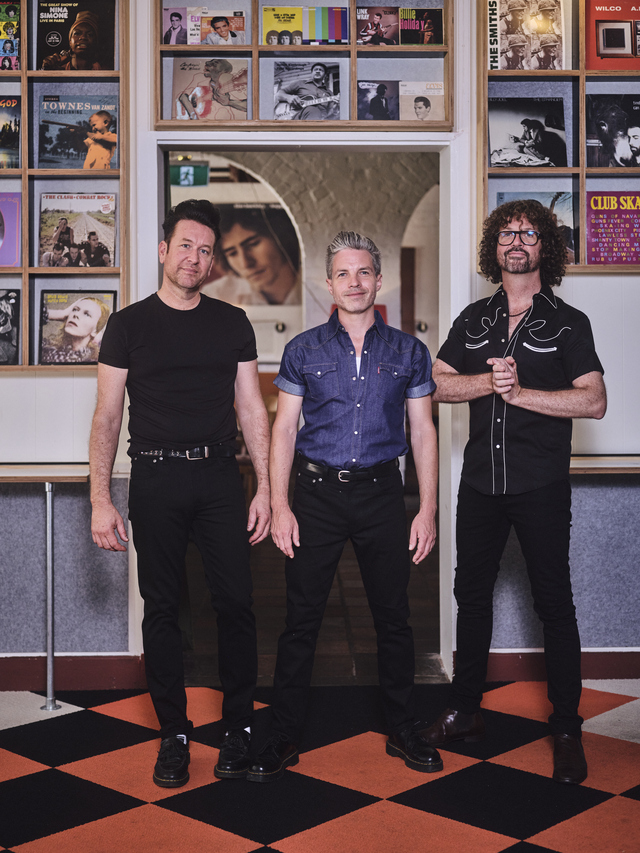In the heart of Whittlesea garbage is being given a new life and waste destined for landfill has been given a purpose, as Holly McGuinness discovers.
An Epping company is leading the charge on sustainable practices by repurposing typically non-reusable materials in a bid to reduce waste and pollution.
RepurposeIT was founded by George Hatzimanolis in 2015, with the aim of finding new uses for used construction and demolition materials.
RepurposeIT estimates it recycles more than 500,000 tonnes of waste a year, saving about 84,000 tonnes of carbon dioxide from the atmosphere.
The company receives non-reusable materials, which are then washed, crushed or cleaned to enable them to be repurposed.
Recently, RepurposeIT has been working with Major Roads Projects Victoria on the M80 Ring Road and North-East Link.
“We were able to take contaminated soil, repurpose some of that by washing it, then add that sand with cement and supply it back to the project as backfill for some electrical conduits,” Mr Hatzimanolis says.
“That is a full circular economy-type solution.”
The company has also recently partnered with Whittlesea, Hume, Manningham and Moreland councils to accept compostable materials that end up in FOGO bins (Food Organics, Garden Organics).
These materials are then converted into compost and landscape materials to be reused, diverting additional waste from landfill.
Having previously worked in road construction, Mr Hatzimanolis believes the work being done by RepurposeIT is the future of construction, energy consumption and even landscaping but says Australia needs to catch up with the rest of the world.
“There’s a whole world of resources out there that we can repurpose, I think there’s been a lot of interest in this space and demand in local communities that we do more,” Mr Hatzimanolis says,
“We don’t have the luxury of time, we’ve been stuck in our historical ways for too long and our environment is paying the price.
“Now we’re playing catch up, we have to change because the infrastructure that we build in the future is definitely not going to be of the same resources that we’ve been using in the past.”
Mr Hatzimanolis believes Australia needs to invest in research and development to build a circular economy.
“It’s the only economy that’s sustainable,” he says.
Due to Australia’s rich resources, he believes the country has fallen behind in research in this sector, in comparison to Eastern European countries such as the United Kingdom, Denmark or Sweden.
He says these countries have been pioneering research as they’ve dealt with the challenges around switching to renewables.
“We’ve got an opportunity not just to look to the rest of the world and what they’re doing about this issue, but to start to lead now and to be in a country that’s really investing in new technology and in new startups,” Mr Hatzimanolis says.
Swinburne University of Technology professor of geotechnical engineering Arul Arulrajah has worked alongside RepurposeIT to do just that.
Professor Arulrajah has helped the company to identify innovative ways to move away from using virgin materials and resources drawn from quarries.
“There’s thousands of quarries in Victoria, the initiative is to reduce the environmental impact of having new quarries,” Professor Arulrajah says.
“If you can divert them from landfills and use them for a higher value use, such as roads or footpaths, which the RepurposeIT products are ideal for, then you’re very much finding the hole for these products.
“If you reduce the need for quarry materials, you reduce the environmental impact.”
Professor Arulrajah has concerns that if mining and quarry practices continue, and renewable practices aren’t seriously invested in, then there’s a risk for significant environmental scarring.
“In the end you’d have a scarring of the land and what normally happens is they try to make use of the quarry and potentially have to fill it up, it’s land that cant be used anymore,” he says.
“It affects the vegetation, the groundwater seeps in and the water could be contaminated.”
He says there is a push to find new ways to use reclaimed products after China placed a complete ban on the importation of Australian solid waste in 2021, following on from tough restrictions introduced in 2017.
Mr Hatzimanolis says he hopes to take RepurposeIT’s facility “off the grid” within the next few years.
The plan is to use a method called anaerobic digestion to break down biodegradable materials, including food waste, and convert them into fuels that can power the facility.
“We’ll use that to digest and capture the gas that would otherwise be emitted to the atmosphere, we capture that gas and convert it to renewable energy,” Mr Hatzimanolis says.
“This is an energy source that runs through a converter and produces electricity … That’ll be enough to take us off the grid, which is something that we’re striving towards in the next couple of years.”

